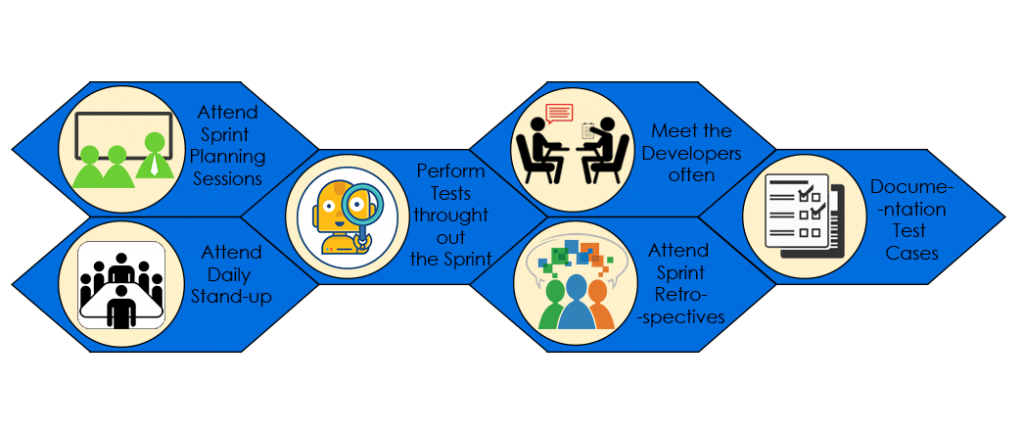The role of QA in Agile
Category: SAP HANA Posted:Oct 14, 2016 By: Alvera AntoQuality Assurance (QA) roles and responsibilities have changed with the adoption of Agile methodologies. In the past, traditional QA had three key things: process, documentation, and tools, which involved much time. With these three things, QA departments could test a product to ensure that it conformed to the requirements. It is not to say that Agile does away with these three things, but definitely Agile uses these tools in a much flexible way. The process, documentation, and tools get incorporated at the required stages, rather than waiting till the completion of the project. The Agile has three recognized roles- Scrum Master, Product Owner, and the Development Team.
Let us discuss the roles of QA in Agile.
- Attend Sprint-planning Sessions
The QA must ensure to attend planning sessions. This would enable the QA to be in sync with the development team from the beginning and helps to identify risk and problem areas at the early stages. QA should analyze the effort required to test the code at every stage of development.
- Attend Daily Stand-ups
QA should attend the daily stand-ups to get involved with the team members and stay up to date. This enables the QA to understand the way the sprint is working and the workload distribution. With the active involvement of QA in the team, gives the chances to resolve any issues immediately, which in turn helps developers to speed up their work.
- Perform Tests throughout the Sprint
To get an effective result, QA must be actively involved in all the stages of the product lifecycle. If QA keeps the testing to the end, and finally finds bugs at the end would ruin the entire cycle. By integrating testing and development, and teams working together resolves the issues soon, leading to achieving quality results.
- Meet the Developers often
A face-to-face meeting can help both QA and developer team to discuss any issues that can save the time later. This helps QA to learn if any new features and technologies used in the project. These interactions can provide effective feedback between development and testing.
- Attend Sprint Retrospectives
No matter how well the team performed, it is always good to have meetings at the end of the sprint to discuss success and failures. This lets everyone to know about the mistakes and can be improved in the next sprints. The retrospectives give an opportunity to find solutions for the whole team. Involvement of QA can enable to understand the concerns before they begin with next sprint.
- Documentation of Test cases
Documentation is equally important for QA too. Keeping the documentation short adds up the value to you and your team. For example, if QA shifts to another project, documentation can help the new team member to speed up the testing faster.
A tool is used to maintain all the documents related to testing.
Eventually, QA uses agile methodologies to make processes, tools, documentation much flexible. The Agile method reshapes the method of testing that focuses on timely delivery. QA must embrace the idea of getting the tasks done quickly by working collaboratively.
Check http://www.zarantech.com/course-list/qa for more professional assistance. Call 515-309-7846 or email us: [email protected]






 99999999 (Toll Free)
99999999 (Toll Free)  +91 9999999
+91 9999999